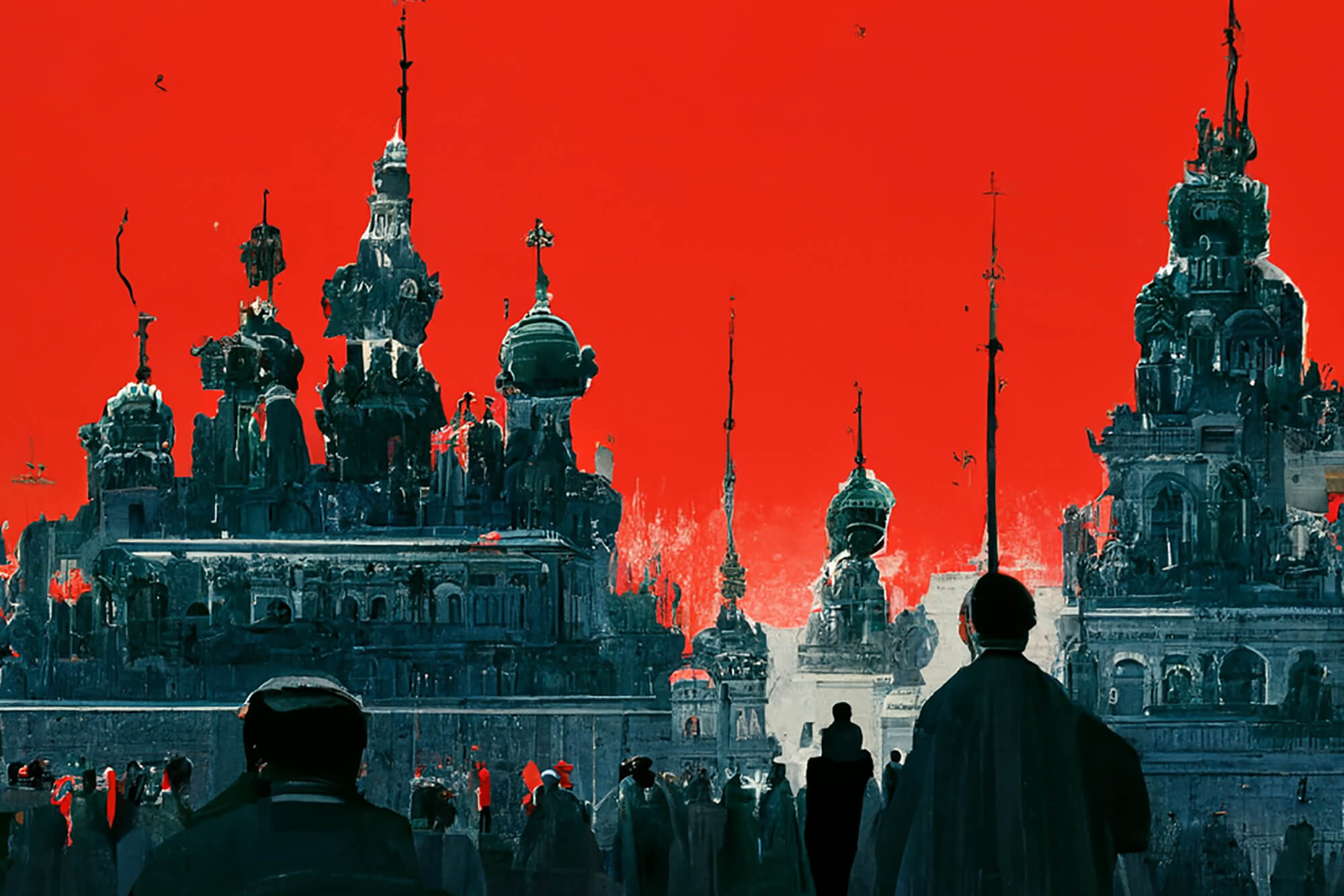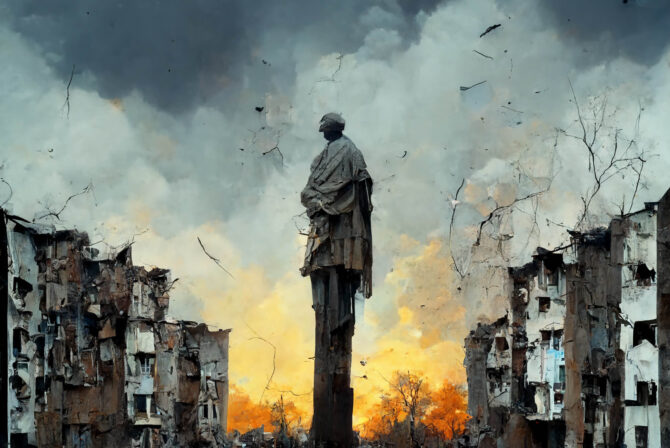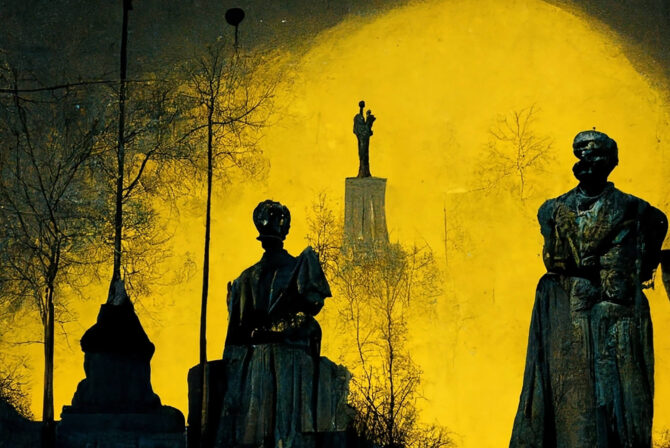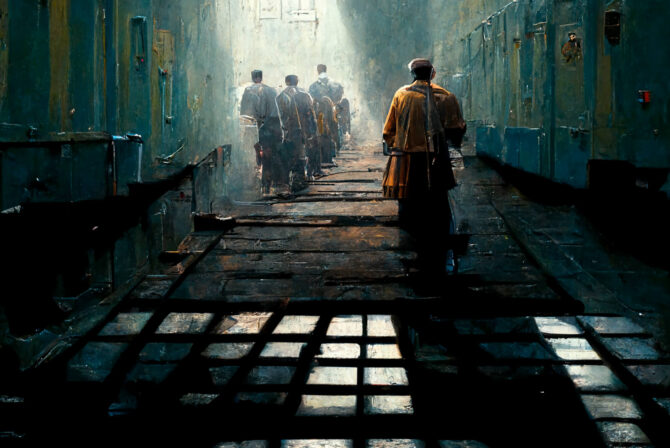The Ukrainians Media is an award-winning independent media company focusing on high-quality, long-form, and visual journalism. Our mission is to foster positive social changes in Ukraine.
This story was created thanks to the support of our readers. Please join The Ukrainians Community on Patreon and help us publish more important and interesting stories.
It is time to describe Russian imperialism thoroughly, diagnose it in detail, and start looking for a cure. Therefore, I propose several theses that can help formulate its diagnosis.
Thesis 1: It is the imperialism of imposed sameness
Western imperialism of the maritime empires of the 15-20th centuries colonized distant peoples and cultures. To become a ruler, one had to travel beyond the horizon.
The differences between the colonizer and the colonized were physically observable. One did not have to feel or understand them; one could see them. Then one had to develop a theory explaining and justifying these differences.
The ideology of European imperialism sought to cement these differences as an instrument of domination. The concept of “difference” began to be interpreted hierarchically (as the difference between “the superior” and “the inferior”), and the difference became an instrument of power. At first, it was a hierarchy of religions, which then turned into a hierarchy of races.
Russian imperialism is of a different kind. It is continental colonialism, targeting neighboring peoples rather than distant ones. Russia first tested it on Ukrainians and Belarusians. Instead of emphasizing differences, the instrument of domination here consisted in their denial. Sameness, rather than difference, became an instrument of power. And it was an imposed sameness.
A 19th-century European imperialist told the colonized: You will never be like me. But a Russian imperialist tells the colonized: You will never be anything other than me.
Hence, the strategy of Russian colonization implied not only colonization but also assimilation and denial of the right to identity and difference.
Since then, the idea of sameness has firmly taken root in Russian culture, and not only in the concept of a “single nation:” it acquired bizarre metaphysical dimensions in the “unitotality” of Vladimir Solovyov and then in Lenin’s idea of world revolution. Russia turned out to be sick with sameness, destroying differences and reducing everything to a common denominator—as a rule, the most primitive of all available.
Thesis 2: Russians colonize not only others but also themselves
Another feature of Russian colonialism is that, in addition to colonization, Russians also engage in self-colonization.
They are internally colonized persons.
It is evident that Russian citizens have been reduced to the status of colonized, that is to say, rightless and voiceless serfs. Russians seek to colonize others precisely because they have been colonized themselves; they commit violence primarily because they are regularly subjected to it within their own society.
Russia is an empire that directs the energy of violence at itself—and only later, traumatized by its own sadomasochism, spews it on others. It first despises its citizens and then, consequently, everyone else.
Russian society comprises not only war criminals or those who support them. It is primarily a mass of passive individuals incapable of making decisions for themselves—who outsourced responsibility and amputated their ability to be independent.
When the Russian Empire falls, these people will not become free citizens. They will remain colonized slaves who, paraphrasing Plato’s famous metaphor, were suddenly brought out of the cave into the light—and got frightened by this light. They will probably covet the empire again and wish to return to the dark.
Thesis 3: Russia is an empire of the feeble and old
There are many parallels between modern Russia and 20th-century fascism and Nazism. Russia has a totalitarian society, a cult of violence, and the syndrome of a “wounded empire” that sees its only salvation in a deep (and illusive) past.
But there is one major difference. Fascism and Nazism were the ideologies of the young. They contrasted themselves with the “old” Europe and old conservatism and relied on the image of a militant young man who had either gone or wanted to go through a Great War. They relied on radical youth.
Putinism is different—it is hopelessly old: biologically, ideologically, and emotionally. It is incapable of invoking empathy and creating new energy.
Both Putinism and Alexander Lukashenko’s regime in Belarus were born out of fear of the unpredictable, chaotic, brutal, yet vibrant 1990s. They evidenced the desire of the Soviet people to return to the USSR—not even to the 1980s but to the 1970s, to stagnation and Brezhnevism.
Putin’s dream was to restore the USSR—the “victor of Nazism,” the ruler of half of Europe and half of the world, the USSR of the times before the death of Stalin. Yet, Putinism restored the USSR of the times before Brezhnev’s death—the old, feeble, and despairing USSR, which is still spoiling for a fight and receiving new blows. Russia wanted to rise from her knees, but when she got up, she wavered and fell face-first into the mud.
Therefore, Russia is not a case of classical fascism but rather its feeble copy. It is a country that very much wanted to become fascist, but it failed.
Russia’s slogan, “We can do it again,” is a direct symptom of its impotence. Because if they can only “do it again,” they are incapable of doing anything else.
It is an empire of imposed sameness, internal colonization, and hopeless senility.
It is much more defenseless than we think. An imposed sameness crumbles fast, internal colonization gives rise to violent slave revolts, and senility leads to chronic backwardness.
Every new step this organism takes becomes an even bigger mistake and an even bigger crime.
Russia attacked us, but it would be more accurate to say it collapsed on us. That feeble old body collapsed on us from weakness.
And we will definitely have enough strength to cope with this weakness.
Volodymyr Yermolenko, philosopher, writer, columnist, President of PEN Ukraine, Editor-in-chief at UkraineWorld.org, Analytics Director at Internews Ukraine, lecturer at the National University of Kyiv-Mohyla Academy, author of Liquid Ideologies, Closer People, Distant People, and The Catcher of the Ocean.
Translated by Stanislav Ostapenko.
The Ukrainians Media is an award-winning independent media company focusing on high-quality, long-form, and visual journalism. Our mission is to foster positive social changes in Ukraine.
This story was created thanks to the support of our readers. Please join The Ukrainians Community on Patreon and help us publish more important and interesting stories.




